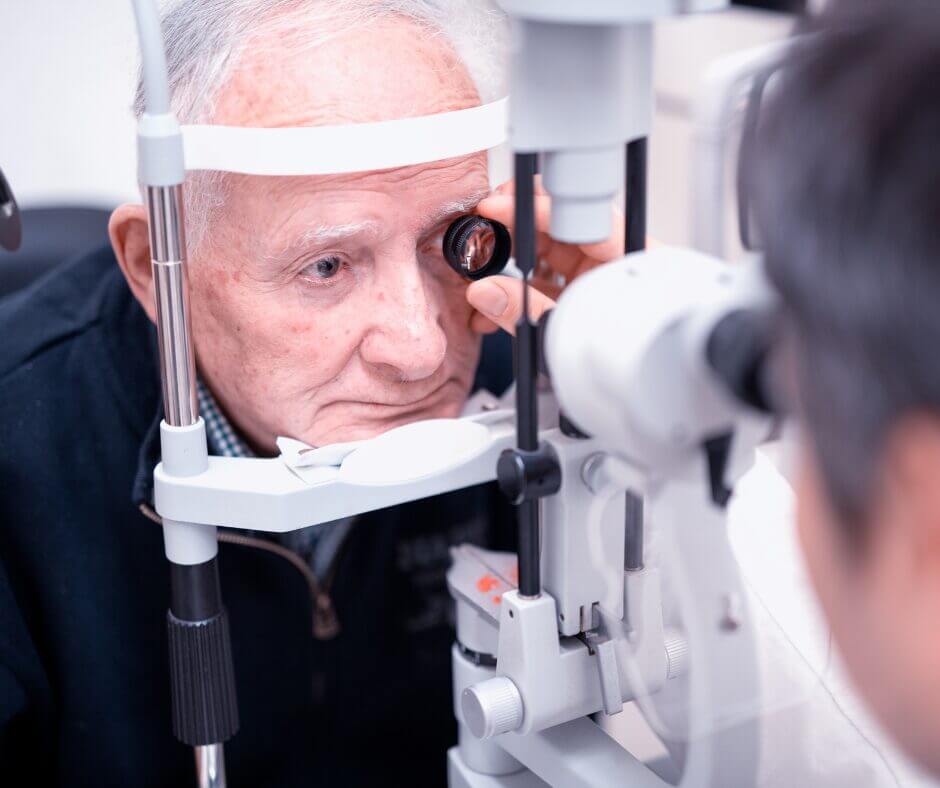Glaucoma is a severe eye disease that attacks the optic nerve and could lead to permanent blindness. Unfortunately, the eye disease doesn’t have immediate signs for all individuals. At the earliest signs of glaucoma, the individual should set up an appointment with an eye care specialist.
Glaucoma can cause lasting effects even if the person doesn’t go blind completely. The only way to keep the disease managed is to follow a treatment plan provided by an eye doctor. By reviewing how to recognize and treat glaucoma, seniors know when to seek help.
Detecting the Symptoms
Residents who live in independent living communities have access to on-site services. If anyone needs transportation to visit an eye doctor, the staff can coordinate transportation for the individual. Common symptoms of glaucoma usually start with headaches, vision impairments, and pressure in the eyes. If a resident has experienced any of these symptoms, the person can get assistance at any time while living in the community.
Ruling Out Other Illnesses
While the symptoms of glaucoma are apparent, some of them are similar to other ailments, and the senior should still get a checkup with a doctor to identify the cause of the problems. Nausea, vomiting, and headaches are common symptoms of a lot of viruses and illnesses, and if a doctor rules out other illnesses this could be a big plus when diagnosing glaucoma. Residents that live in assisted living housing often have access to caregivers to help with activities of daily life, and they can report any signs of glaucoma to the person’s doctor.
Getting Routine Eye Examinations
During regular eye examinations, eyecare specialists dilate the patient’s eyes and look at the optic nerve. Glaucoma causes damage to the optic nerve and creates vision problems. As the doctor examines the person’s eyes, images are captured to evaluate the progression of the disease after a diagnosis. Doctors will recommend additional eye examinations for anyone who has been diagnosed with the eye disease.
Common Treatments for Glaucoma
Eye care specialists start glaucoma treatments with prescription eye drops to control the pressure in the affected eye. The medication can cause some irritation at first. Oral medications are also provided to enhance proper drainage of fluid in the eye.
Laser surgery is performed to open the drainage area of the eye. The process could be completed by creating a hole in the iris, or the surgeon will correct issues of the mid-layer of the eye.
What Are Common Risk Factors?
Many individuals who are at least 60 years old are at the greatest risk of developing glaucoma. If the person has a family history of glaucoma, most doctors recommend an eye examination each year to determine if there are signs of the eye disease.
African-Americans and anyone who has been diagnosed with sickle cell anemia are also at a more profound risk. Studies show that some individuals can develop glaucoma as early as 40, and some infants can also develop the disease due to premature births.
Why Regular Treatment Is Necessary
Seniors who have been diagnosed with glaucoma must continue the treatment set up by the doctor. If the person doesn’t follow the treatment regimen, the optic nerve could become permanently damaged and cause total blindness.
Great Homes for Seniors
At Ocean Hills Senior Living, we strive to provide services for all residents and ensure that everyone stays healthy. Our community is a group of incredible individuals who provide encouragement for each other every day, and new residents find fast friends. Families and seniors who want to learn more about services such as memory care get started by setting up a tour now.
Glaucoma is a serious eye disease that damages the optic nerve and could cause partial or total blindness. Seniors who are at least 60 years old are within the age group of individuals who are diagnosed with glaucoma each year. The symptoms can include blurry vision, severe headaches, vomiting, nausea, and pressure in the eyes. The only way to diagnose the disease is through a thorough eye examination.
Common risk factors are age, a family history of glaucoma, racial makeup, and a history of eye injuries. Any resident at a senior community can get regular eye examinations at any time, and the community staff can help residents get to appointments. Once the person has been diagnosed, the doctor provides a comprehensive care plan to reduce the progression of the disease. By learning more about recognizing and treating glaucoma, seniors can get healthcare services and protect their vision effectively.

